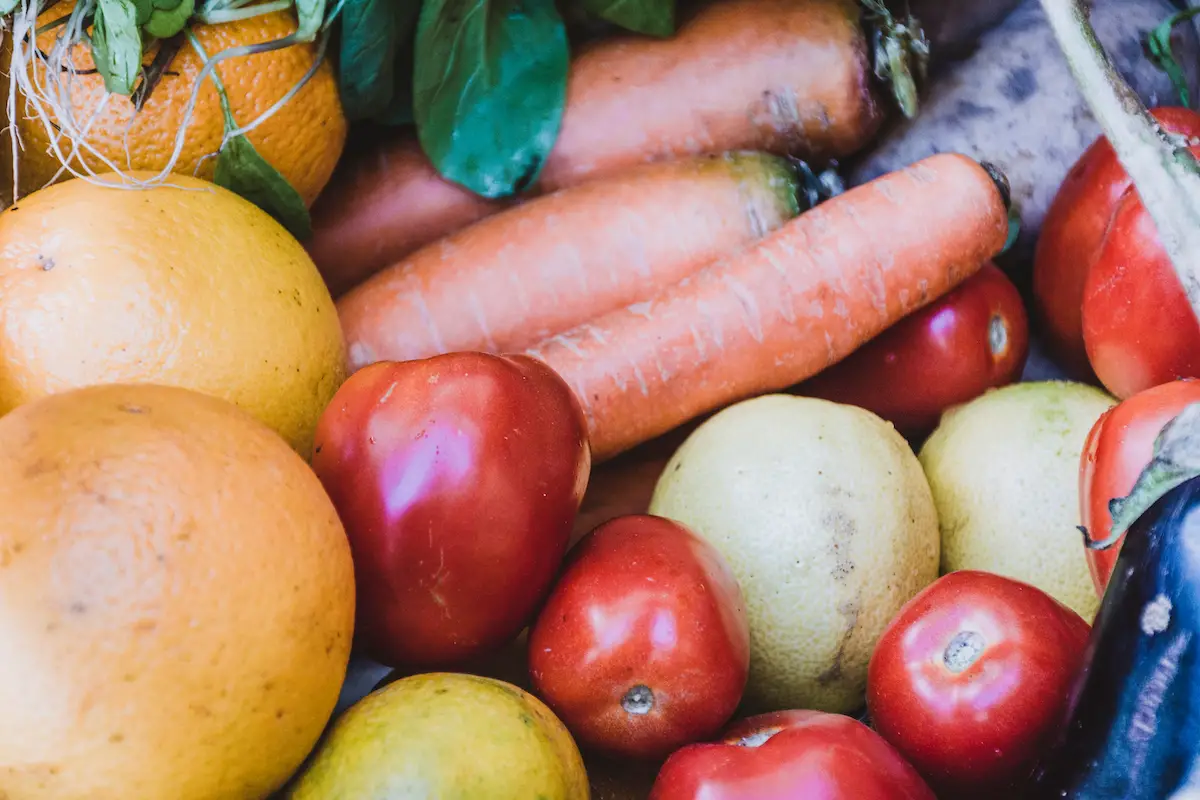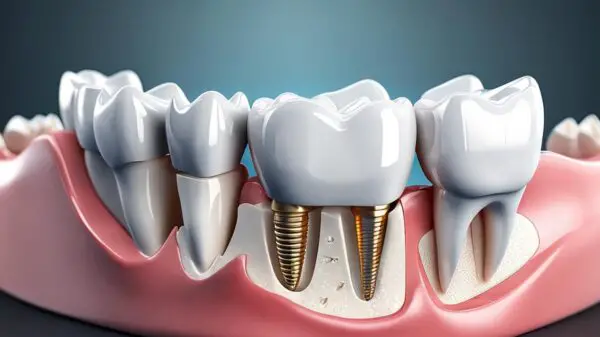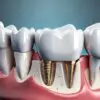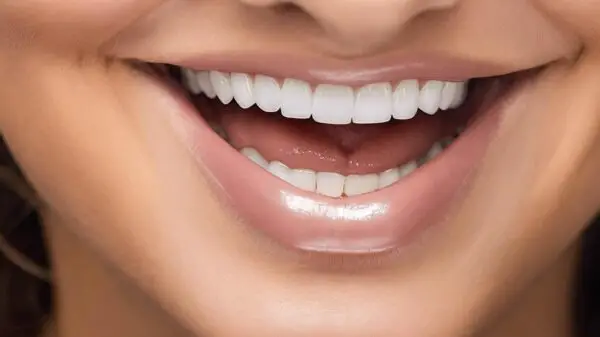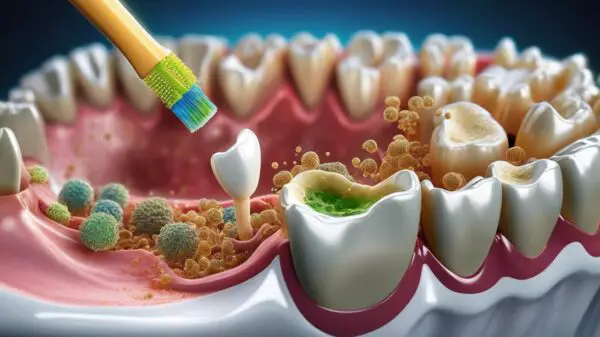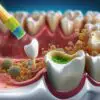Foods That Lead to Fresh Breath
Having fresh breath is essential for maintaining good oral hygiene and social interactions. Nobody wants to have bad breath, also known as halitosis, as it can be embarrassing and off-putting.
While regular brushing, flossing, and dental check-ups are crucial for fresh breath, the foods we consume can also have a significant impact.
In this article, we will explore various foods that can help improve the smell of your breath and provide you with some practical tips for maintaining fresh breath throughout the day.
What Foods Cause Breath to Smell Better?
The Power of Fresh Herbs and Spices
Including fresh herbs and spices in your diet can significantly contribute to fresher breath. Herbs like parsley, mint, and cilantro are not only flavorful but also contain natural compounds that help combat bad breath.
These herbs have antibacterial properties that reduce the growth of odor-causing bacteria in the mouth. Moreover, chewing on a sprig of parsley or mint after a meal can act as a natural breath freshener.
Crunchy Fruits and Vegetables
Crunchy fruits and vegetables, such as apples, carrots, and celery, can also help freshen your breath. The act of chewing these foods increases saliva production, which washes away food particles and bacteria that cause bad breath.
Additionally, the natural fibers in these fruits and vegetables stimulate saliva flow and act as a natural mouth cleanser. Incorporating these foods into your daily diet can be an excellent way to improve the smell of your breath.
 The Role of Dairy Products
The Role of Dairy Products
Dairy products, such as milk, cheese, and yogurt, can also play a role in improving the smell of your breath. While dairy products may not have a direct freshening effect, they can help neutralize odors caused by other foods.
The proteins and fats present in dairy products bind with odor-causing compounds, reducing their impact on your breath.
Moreover, dairy products are often rich in calcium and vitamin D, which are essential for maintaining strong teeth and healthy gums. By incorporating dairy into your diet, you can support overall oral health and contribute to fresher breath indirectly.
However, it’s important to note that some individuals may be lactose intolerant or have dairy allergies, which can lead to digestive issues and potentially worsen breath odor.
If you have any concerns or dietary restrictions related to dairy, it’s best to consult with a healthcare professional or dentist for personalized advice.
Green Tea’s Freshening Effect
Green tea is not only a refreshing beverage but also offers several benefits for fresh breath. It contains catechins, which are antioxidants that help suppress the growth of bacteria responsible for bad breath.
Drinking a cup of green tea after a meal can help cleanse the mouth and neutralize odors. Moreover, green tea is known to have other health benefits, such as reducing the risk of gum disease and promoting overall oral health.
Citrus Fruits and Vitamin C
Citrus fruits, such as oranges, lemons, and grapefruits, are rich in vitamin C, which can help combat bad breath. Vitamin C is known for its antibacterial properties and can help kill odor-causing bacteria in the mouth.
Additionally, the acidic nature of citrus fruits stimulates saliva production, which helps wash away bacteria and food particles. Including citrus fruits in your diet can not only freshen your breath but also boost your immune system.
Hydration is Key
Staying hydrated is crucial for maintaining fresh breath. Drinking an adequate amount of water throughout the day helps keep your mouth moist and prevents dry mouth, which can contribute to bad breath.
Water also helps flush out food particles and bacteria from the mouth, reducing the chances of odor development. Make it a habit to sip water frequently and ensure you’re well-hydrated for optimal oral health and fresh breath.
 When to See a Dentist for Bad Breath
When to See a Dentist for Bad Breath
When it comes to bad breath, occasional occurrences can usually be resolved with proper oral hygiene practices. However, if bad breath persists despite your best efforts, it may be time to see a dentist.
Dentists are experts in oral health and can help identify the underlying causes of chronic bad breath, also known as halitosis.
Persistent bad breath can be a sign of an underlying dental or oral health issue. Dental problems such as gum disease, cavities, or oral infections can contribute to foul-smelling breath.
When you visit a dentist for bad breath, they will thoroughly examine your teeth, gums, and mouth to identify any potential problems that may be causing the issue.
Bad Breath Can Be a Symptom of Something Else
In some cases, bad breath may not originate from a dental problem but could be a symptom of a more serious underlying health condition. For example, respiratory infections, chronic sinusitis, diabetes, liver or kidney problems, and acid reflux can all lead to persistent bad breath.
A dentist can evaluate your oral health and, if necessary, refer you to a medical professional for further evaluation and treatment.
Bad Breath Can Impact Your Confidence and Well-Being
It’s important to remember that bad breath can have a significant impact on your confidence and overall well-being. If you find that bad breath is interfering with your daily life or causing social discomfort, seeking professional help from a dentist is highly recommended.
They can provide guidance, diagnose any underlying issues, and offer appropriate treatment options to help you regain fresh breath and improve your oral health.
If you are experiencing chronic bad breath that does not improve with proper oral hygiene practices, it’s time to schedule an appointment with your local dentist.
They have the expertise to identify and address the underlying causes of bad breath, whether they originate from dental issues or other health conditions. Don’t hesitate to seek professional help and take control of your oral health and fresh breath.
 Conclusion
Conclusion
Achieving fresh breath involves a combination of good oral hygiene practices and incorporating breath-freshening foods into your diet.
Foods like fresh herbs, crunchy fruits and vegetables, yogurt, green tea, citrus fruits, and staying hydrated can all contribute to better-smelling breath.
By making conscious choices about what you eat and following a regular oral care routine, you can enjoy fresh breath and confidently engage in social interactions.
Remember, fresh breath not only boosts your self-confidence but also promotes overall oral health.
Frequently Asked Questions
How does bad breath develop?
Bad breath develops due to the presence of bacteria in the mouth, which break down food particles and release foul-smelling gases. Poor oral hygiene, certain foods, and underlying health conditions can contribute to bad breath.
Are there any foods that can cause bad breath?
Yes, certain foods like garlic, onions, and strong spices can contribute to bad breath. These foods contain sulfur compounds that are released into the bloodstream and eventually exhaled through the lungs.
Can chewing gum help freshen your breath?
Chewing sugar-free gum can help freshen your breath temporarily. It stimulates saliva production, which helps wash away bacteria and food particles. However, it’s important to note that chewing gum is not a substitute for good oral hygiene practices.
How can I maintain fresh breath throughout the day?
To maintain fresh breath throughout the day, it’s important to practice good oral hygiene. Brush your teeth at least twice a day, floss daily, and use an antibacterial mouthwash.
Additionally, drink plenty of water, avoid foods that cause bad breath, and consider chewing sugar-free gum or using breath mints as a temporary solution.
When should I see a dentist about bad breath?
If you have persistent bad breath despite practicing good oral hygiene and making dietary changes, it’s advisable to see a dentist. They can evaluate your oral health, identify any underlying issues, and provide appropriate treatment or recommendations.
Are there any natural remedies for bad breath?
Yes, there are several natural remedies for bad breath. Besides consuming foods that freshen your breath, you can try rinsing your mouth with a solution of water and baking soda, using a tongue scraper to remove bacteria from the tongue, or gargling with a mixture of water and apple cider vinegar.
However, it’s important to consult a healthcare or dental care professional before trying any new remedies.



